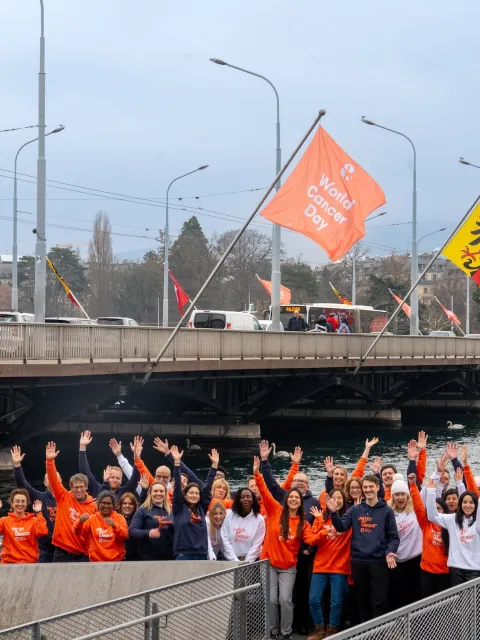Nine guiding principles for World Cancer Day
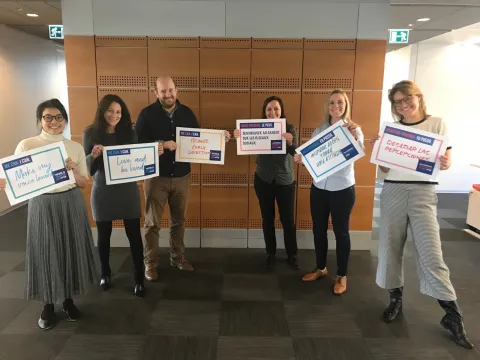
Since I first started as the World Cancer Day campaign manager at the Union for International Cancer Control (UICC) in late 2016, the way I orientate my year no longer starts with January, but begins and ends with 4 February. Now, time is measured in months, weeks and days to go until World Cancer Day. Apart from a few select birthdays and my own wedding anniversary, no other date holds as much weight.
Some days, it’s easy to over-focus on the date as the end goal, yet as cliché as it is to say, it’s the journey that brings the most reward.
It has been over a year since I took on the responsibility of harnessing the support for this growing, global movement. In the time that has unfolded since then, I’ve started to build an understanding of what makes World Cancer Day stand apart from other awareness campaigns, what gives it significance to the thousands of supporters around the world – and importantly how myself and the team consciously channel the focus and purpose of this powerful platform for action and change.
I’ve attempted to put this in writing as my own guiding principles for World Cancer Day. The principles are based on what I have gathered over the past 12 months in speaking to UICC members, working with passionate colleagues, following our incredible supporters and listening to dedicated partners - all who are engaged in different ways.
They help me to focus in on the important work: rallying together diverse supporters around a central campaign that mobilises action for impact. Hopefully, for our member organisations reading this blog post on World Cancer Day, it provides some context and insight into the daily work and thought processes over the course of the past year.
And, hopefully it will give all readers inspiration to create their own guiding principles, a compass for the year ahead, whichever date it might start and end on.
1. World Cancer Day shares and builds on the work and mission of UICC
World Cancer Day is not separate from UICC but in contrast works in synergy with the incredible work being done by the different teams and our member organisations. For example, in 2018 our global press story highlights the equity gap when it comes to access to cancer services, continuing to build on UICC’s work in promoting greater equity and our new Treatment for All advocacy campaign.
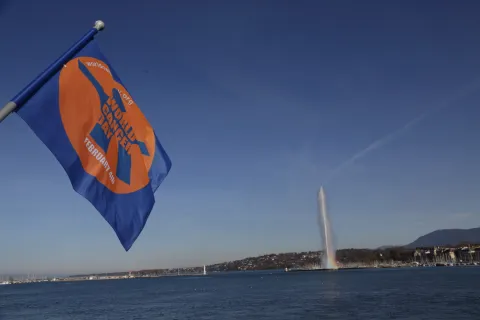
2. We consider the active role of UICC members in every aspect of the work
UICC members are indisputably instrumental to the success of World Cancer Day. To throw in a buzz word, UICC members are our tribe who help to spread and give gravity to the World Cancer Day message at a national, local and personal level. It would be impossible for us to speak at such a granular level (and a mistake to think that we can) but through our members, the message sticks and reverberates around the world. The team at UICC personally calls each of our members every year in the lead up to World Cancer Day to ensure the lines of dialogue are open for an exchange of information and feedback.
3. What we say and our key messages must hold universal truth and must be able to be expressed in many different languages
We could not call ourselves global if what we say doesn’t relate or resonate at a local level. That doesn’t mean being generic or dumbing it down – it means speaking from a place of truth, having an acute awareness of what’s happening around the world, and listening, listening and listening to member insights. That’s why we’ve built an advisory group of UICC members with representatives from around the world to help us sound out new ideas and different messages.
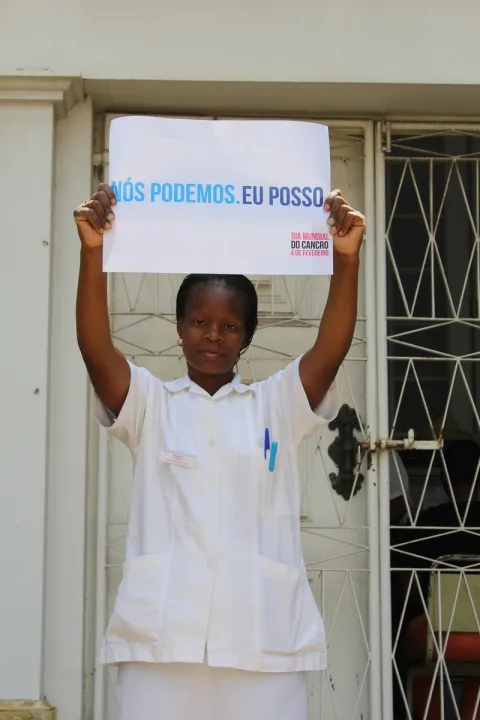
4. We aim to be as inclusive as possible
Cancer is a shared human experience, which means that World Cancer Day cannot be for the select few. It must be a shared experience, regardless of where you live, your income, your language, education status, gender or religion. We try to use inclusive language, imagery that doesn’t exclude, and to produce the campaign materials in as many different languages as possible. This year, we’ve translated the campaign poster into 52 languages thanks to our supporters. We have ambitions to make World Cancer Day even more accessible to as many people as possible over the next couple of years (so, stay tuned).
5. We speak to all parts of the cancer continuum
The cancer journey - prevention, detection, diagnosis, treatment, survivorship and end of life care – is the complete story we tell. For example, our 2017 press story on physical activity wasn’t just a story about prevention, but was equally about the critical role of physical activity in the treatment and recovery stages of the cancer journey.
6. We build connections to resonate with all stakeholder groups
We recognise that together, we are stronger and that each stakeholder has their own value to contribute: cancer organisations, businesses, cities, governments, individuals, healthcare professionals, care givers, those living with cancer, survivors, schools, and sponsors. It’s the reason why we’ve put effort into building new toolkits this year, especially for cities and schools.
7. We seek to be a positive force in our messaging
We choose to inspire, empower, encourage, call on, and invite action rather than motivate through fear or negative-based messaging. With World Cancer Day, we celebrate progress, we honour the heroes and recognise the impact we can all make - while never shying away from pushing for more. You’ll see this no more so than in our social media activities. This year’s Signs for Change social media activity empowers us all to take a stand against cancer, to visibly show the world the actions we are taking and it provides an opportunity for supporters to call on for more to be done.
8. We seek to create value for our partners
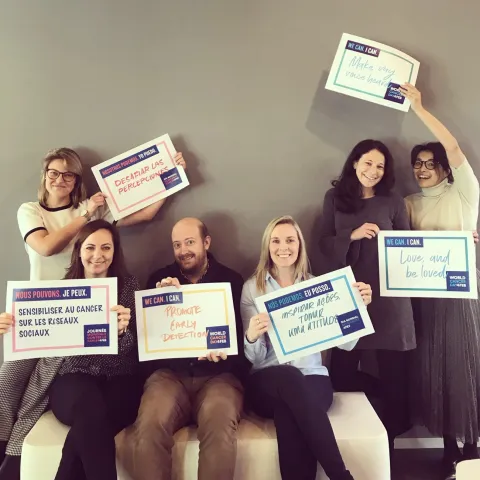
Our partners support the best work that we do. Like any foundation of a productive, functional and successful partnership, we’re in it with a long-term view and where value is created both ways. Our partners use the day to amplify the World Cancer Day message, create conversations, and use the power of their networks and resources for reach and influence.
9. We strive to be impactful and offer World Cancer Day as a public good that serves the greater good
That’s why all the materials including the logo, brandmark, factsheets, etc. are freely available on our website, and why every year we meticulously report on the collective achievements of World Cancer Day, on the tangible, concrete actions by our member organisations, governments, businesses and individuals around the world.
At the end of Day, we (myself, the UICC team, our member organisations, partners and supporters) are attempting to save lives: to create meaningful impact on World Cancer Day so that we see the ripple effects long after the Day has passed.
There is still time for you to get involved in World Cancer Day 2018 this 4 February. The easiest way to show your support is by joining us on social media: Be part of the Signs for Change activity and add your voice to the global call to action at www.worldcancerday.org/Thunderclap.
Last update
Friday 07 June 2019Share this page


